(CLO) For the first time since 2009, the ruling Liberal Democratic Party (LDP) lost its majority in the Japanese House of Representatives after a heavy defeat in the election on October 27. The defeat will cause Prime Minister Shigeru Ishiba to face many challenges and the Japanese political situation will inevitably be affected.
Mr. Ishiba's "wrong move"
According to the election results, the LDP suffered a historic defeat in the general election on October 27. Even with the support of the Komeito Party, which has been in coalition with the LDP for a quarter century, the election results could not help the ruling party and Prime Minister Shigeru Ishiba maintain a majority in the 465 seats in the Lower House.
There are many explanations for the ruling LDP's defeat stemming from the party elite money laundering scandal that came to light in late 2021. However, there is no denying the growing dissatisfaction of the Japanese people with the government's socio-economic policies, which have led to a significant decline in the living standards of the vast majority of Japanese. All of this has severely damaged the LDP's reputation, forcing Fumio Kishida - Shigeru Ishiba's predecessor - to resign and not seek re-election as party leader.
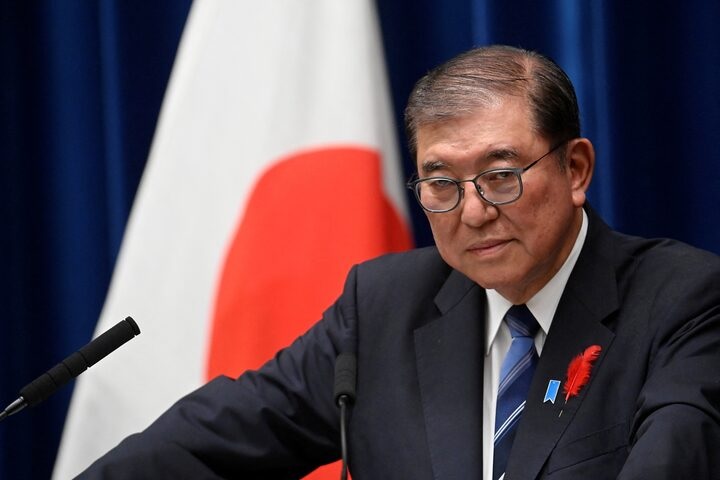
Did Japanese Prime Minister Shigeru Ishiba miscalculate? Photo: Reuters
After being elected Prime Minister, Shigeru Ishiba quickly dissolved the House of Representatives and called for early elections. Analysts believe that Mr. Ishiba wanted to capitalize on his high personal ratings by portraying himself as a clean politician and narrow the opportunities for opposition forces that could not unite in a short period of time.
However, Prime Minister Shigeru Ishiba’s calculations were completely wrong, as he underestimated the level of public dissatisfaction with the ruling party. As a result, his strategy of holding early lower house elections backfired. The defeat was also a disaster for the Komeito party, which was embroiled in a scandal that cost its new leader, Keiichi Ishii, his seat in parliament.
Although the defeat of the ruling LDP does not mean that there will be a change in senior personnel in the government, in order to implement his policies and guidelines, Prime Minister Shigeru Ishiba will have to build a new ruling coalition with the opposition party. Many opinions say that it could be the People's Democratic Party, but this party has too many differences with the ruling LDP, and it will be extremely difficult to form such a coalition before the next parliamentary session, scheduled to take place on November 11.
Risk of political instability
The ruling LDP's crushing defeat in snap lower house elections will plunge the country's politics into turmoil and make it harder for Prime Minister Shigeru Ishiba to pursue reforms needed to win back voters.
Mr. Ishiba once pledged to first minimize the negative impact of inflation on households, strengthen Japan's security and defense against "security threats" to the country in the Northeast Asia region, solve the problem of declining birth rates, increase birth rates, ensure economic stability and enhance the country's ability to cope with natural disasters...
Apparently, Prime Minister Shigeru Ishiba has become more realistic, abandoning some of his previous commitments, such as reducing dependence on nuclear energy in favor of renewable energy, establishing an “Asian NATO,” revising the US-Japan security treaty toward equality, and many other issues.
These proposals are sure to raise questions and objections not only from Japan’s Asian neighbors but also from its key ally, the United States. However, Washington has assured Tokyo that it will continue to work with Japan as a close ally on security challenges in the Indo-Pacific region, global issues, and especially on promoting trilateral cooperation between the United States, Japan and South Korea.
Will the military buildup policy encounter difficulties?
In the context of the nuclear issue on the Korean Peninsula "heating up", it is not surprising that Prime Minister Shigeru Ishiba will continue the path of his predecessor Kishida, not only strengthening military cooperation with Washington and Seoul, but also promoting military modernization with the expectation of bringing Japan's military spending to 2% of GDP by 2027, which is at the average level of NATO countries.
The national security strategy adopted under former Prime Minister Fumio Kishida gives the Japanese military offensive capabilities, a departure from the post-World War II constitution, which places restrictions on the Self-Defense Forces (SDF), which are only used in name to defend Japanese territory.
The new security strategy will not only provide Tokyo with long-range weapons such as the US-made Tomahawk missile, but also actively develop its own long-range missiles that can strike bases from which potential adversaries could attack Japanese territory. In addition, Prime Minister Shigeru Ishia will continue to strengthen cooperation with NATO, promote the implementation of the “Quad” framework (Japan - US - Australia - India) as well as other multilateral and bilateral cooperation.
However, the ruling LDP's defeat will make it difficult for Prime Minister Shigeru Ishiba to push his tough stance on security and defense issues. Ishiba has always supported the modernization of the SDF and the country's more active participation in international military activities.
Experts say that Mr. Ishiba’s proactive deterrence stance is likely to face fierce opposition from the opposition party, as it goes against the “defense” stance in the country’s constitution. Overall, it is difficult to predict what Prime Minister Shigeru Ishiba will be able to accomplish with his plan given the current unstable domestic political situation in Japan.
Ha Anh
Source: https://www.congluan.vn/nhung-thach-thuc-cho-nhat-ban-sau-that-bai-lich-su-cua-dang-cam-quyen-post319251.html





![[Photo] Prime Minister Pham Minh Chinh chairs a meeting of the Steering Committee for key projects in the transport sector.](https://vphoto.vietnam.vn/thumb/1200x675/vietnam/resource/IMAGE/2025/5/10/0f4a774f29ce4699b015316413a1d09e)






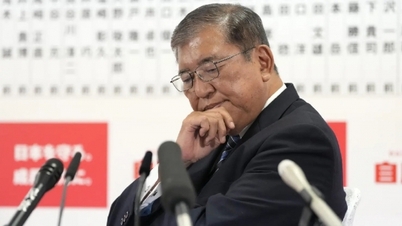

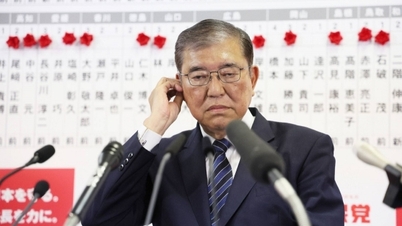
































































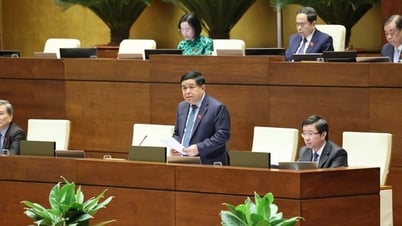

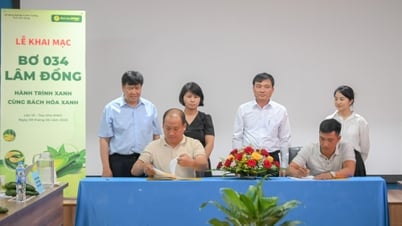





















Comment (0)